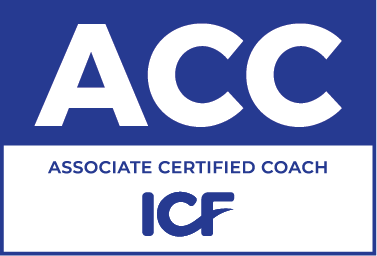You Want To Change Your Career But Where Do You Start?

When you are in a job that you dislike or which doesn’t challenge you any more, your whole life can be affected. You may become demotivated and moody. You feel trapped. Instinctively you feel that there is something better out there for you. But what? You really want to change but you haven’t a clue where to start.
The first step
But once you decide that things need to change, taking the first step can make a big difference. There may be challenges and obstacles along the way. Nevertheless that first step can unleash in you a new energy which will help to give you the clarity and determination to press ahead.
Stay curious
When you are embarking on career change you are your best ally. Be curious about what is on offer. As well as getting some expert advice draw on your own detective skills when you do your research about the sorts of jobs and training that are available. Gather evidence. Talk to witnesses. Follow up leads. If you have a hunch about something pursue it. Don’t worry if you come to a dead end in the road. Trying out something which you discover is actually not right for you is never a wasted moment. You will have learnt a lot about yourself during the process. Importantly, it is a step closer to what you want for your new career.
Mindset matters
We can be our own worst enemy when we are trying to make a career change. Sometimes fear of the unknown can cause us to freeze up. Often we overthink things with too many what if’s thrown into the mix. What if I fail? What if it doesn’t work? What if I hate the job? Added to that we procrastinate. For example, insisting that we read just one more book on the subject before we can even contemplate taking the smallest action. Whilst there is nothing like good preparation, there is a danger that we fall into what has been described as ‘analysis paralysis’. At that point it may simply feel easier to give up. But thinking big and harnessing all the dreams and ideas you may have, crazy or illogical they may sound at the start, can help you break out of your inertia. There will be time to explore and even reject such ideas if necessary later.
Talk to people at the sharp end
You can get a lot of advice and support from the experts such as those in the National Careers Service, Careers Wales, sector bodies and career coaches. These organisations and individuals can help you find out about qualifications, training and career paths. But there is nothing quite like talking to people at the sharp end who are doing the jobs that may interest you. You get a feel for this far better than just reading about them. Conversations with the relevant people can help you find out what they really love about their work and their working environment. If you are stuck, start off with the people you may know already and then move on. It is surprising how often one conversation can lead to another resulting in a network of people who can help to enthuse and give practical advice. LinkedIn is extremely valuable in helping you to build relationships with individuals and companies in the line of work that you are researching. So don’t be afraid to reach out.
Look after your wellbeing
Thinking about, planning and ultimately changing your career can often take time. It can put a lot of pressure on you. When you are constantly pondering about the future and what to do next, this can deplete your energy reserves making you feel irritable and fed up. And that is not a good look when you are applying for a new job. So take a break! Treat your job search as if you would your job. Allocate a certain time of the day to do job search activities. Don’t spend all your time at this task when you are tired. Mix this up with periods when you can relax and rest. Set yourself measurable goals. Despite the enormity of the task, being organised can help you stay calm and present your best self to potential employers.
Dip your toe in the water
When you are making a career shift, the leap required can feel enormous. In addition, the sense that change should be all or nothing can be quite off-putting. In reality, career change can be done in an incremental way. While you are in your existing job you can experiment. Just dip your toe in the water and be prepared to try a few other things without wading in too deeply. Before I became a full time politician, I spent many years volunteering and campaigning in politics because that was my passion. For some of that period I was also an elected member of a local council whilst at the same time working full time in education. That combination certainly paid off in the long term. The invaluable skills and contacts I had made really supported me when I became one of the first intake of politicians in the Senedd/Welsh Parliament. Similarly, whilst in your current employment, look out for opportunities to make contact with the people in the jobs that interest you. Being mentored, doing some periods of work shadowing or work experience can all help to get you noticed but also give you an insight into the job that you ultimately want.
Get moving
Be aware of what Cyriel Kortleven describes in his book The Change Mindset as ‘Idea Killers’, those overly cautious thoughts you may have which stop you from making your career change. Those voices will be strong and it may just feel easier to stay put. But think about what that will cost you in the end if you remain stuck in an unfulfilling role. Career change can feel overwhelming but taking that first step can indeed be liberating.
[Image: Jacob Dyer]




